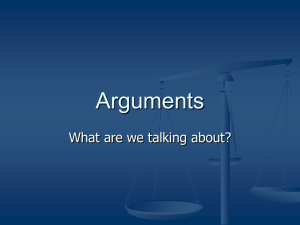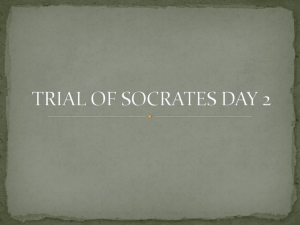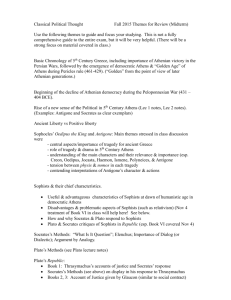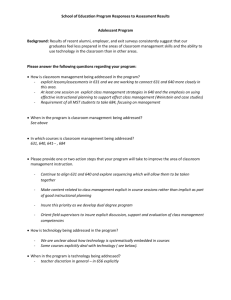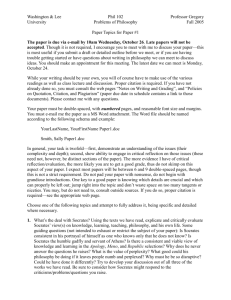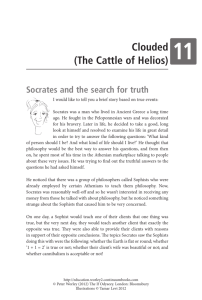Writing Arguments (Brief Edition) by Ramage, Bean and Johnson
advertisement
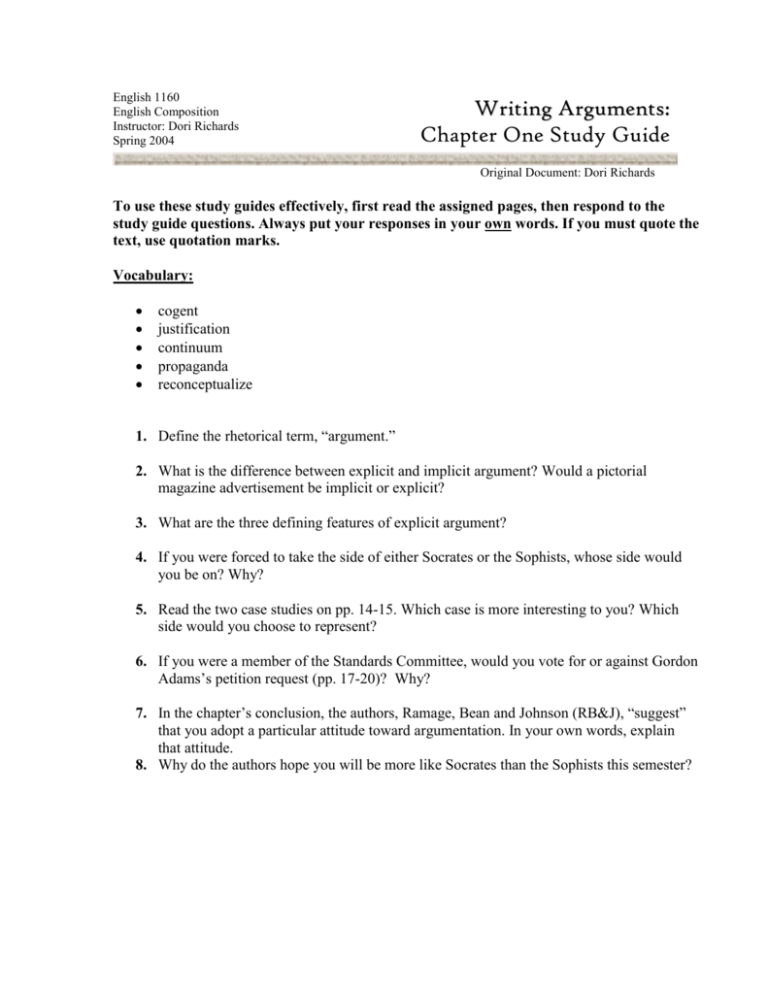
English 1160 English Composition Instructor: Dori Richards Spring 2004 Writing Arguments: Chapter One Study Guide Original Document: Dori Richards To use these study guides effectively, first read the assigned pages, then respond to the study guide questions. Always put your responses in your own words. If you must quote the text, use quotation marks. Vocabulary: cogent justification continuum propaganda reconceptualize 1. Define the rhetorical term, “argument.” 2. What is the difference between explicit and implicit argument? Would a pictorial magazine advertisement be implicit or explicit? 3. What are the three defining features of explicit argument? 4. If you were forced to take the side of either Socrates or the Sophists, whose side would you be on? Why? 5. Read the two case studies on pp. 14-15. Which case is more interesting to you? Which side would you choose to represent? 6. If you were a member of the Standards Committee, would you vote for or against Gordon Adams’s petition request (pp. 17-20)? Why? 7. In the chapter’s conclusion, the authors, Ramage, Bean and Johnson (RB&J), “suggest” that you adopt a particular attitude toward argumentation. In your own words, explain that attitude. 8. Why do the authors hope you will be more like Socrates than the Sophists this semester?

